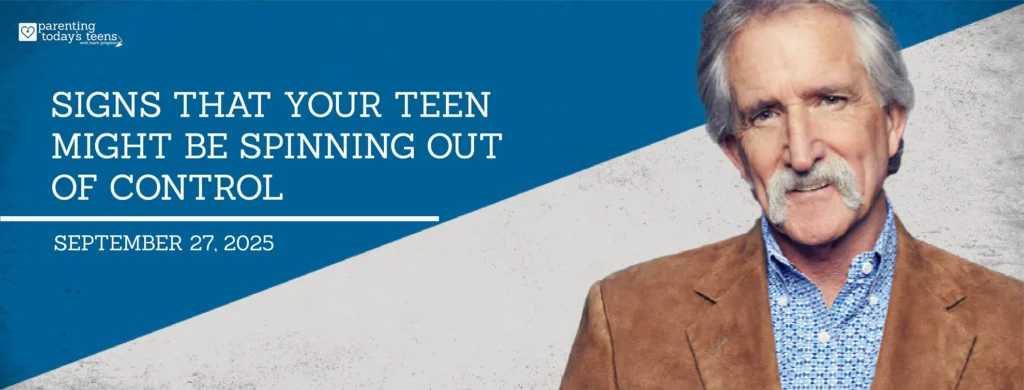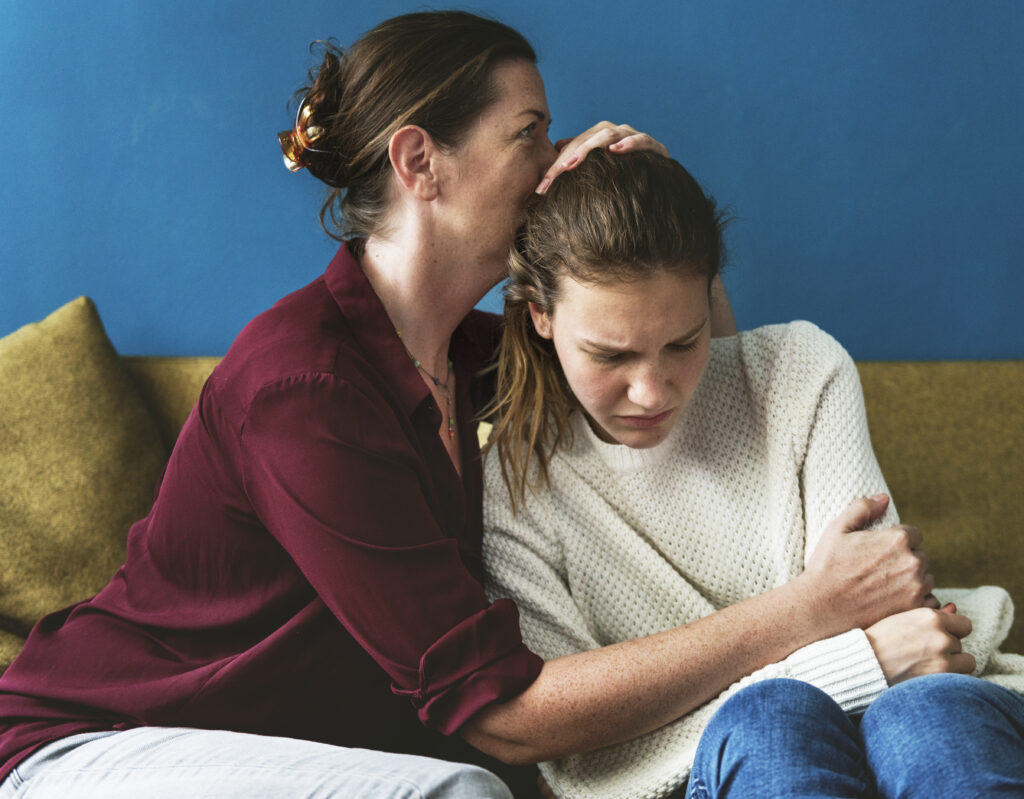I’ve noticed that most articles, books, and curriculum series about grandparenting target grandkids in the pre-teen years. Grandkids, at this age, seem to be cuter, more compliant, and easy to please. Few authors spend time talking about the teen years when our grandkids need us the most, during the time when taking the biblical principles, hopes, and dreams into their adolescent culture, can be somewhat confusing. This is the time that grandkids need their grandparents more than ever, perhaps when they are as cute, not as compliant, and not so easy to please.
I didn’t really know any of my grandparents. They were distant and old. One set lived in the booming metropolis of Ryan, Oklahoma, and the other in the small northern Kansas town of Concordia. By the time I was twelve, they were all in bad shape. They didn’t seem to care much about my brother, sister, and me. Their focus just wasn’t on grandkids.
I knew my dad’s dad as one who was in and out of a nursing home. I remember watching him take out his teeth at dinner and eat bread that was soaked in milk. I don’t remember him ever saying a word to me. There was never a connection.
My dad’s mom was a quiet lady. She never said much of anything, but she laughed a lot. She traveled into the Oklahoma Territory in a covered wagon and lived in a log cabin in her adolescent years. Her dad had a huge mustache. She was not much for conversation, but she loved to make chocolate cake. Every time I see a chocolate cake, I think of my paternal grandma. And when I saw my grandma, I’d think of her chocolate cake…and not much else.
The only thing I can remember about my mom’s dad was his views of anyone who wasn’t white and let’s just say his views don’t bear repeating. He also didn’t have time for us, so we never made time for him.
My mom’s mom was frail and somewhat critical in spirit. I never saw her laugh, never enjoyed being with her and my grandpa, and couldn’t wait to drive away from that little north Kansas town whenever we were there.
You now know the total of all my memories of my grandparents. Isn’t that sad? In just five small paragraphs, you know everything about the roles my grandparents played in my life (or didn’t play is more like it). It’s not that I hated them. I just wasn’t sure I loved them, as it’s hard to love someone with whom you have no relationship. There were no values or morals transferred. There were no stories of family traditions of fun times together. Never a mention of what they believed or hoped for. No instruction. No wisdom shared. And, sadly, no love lost when each passed away.
So, when my daughter told me when I was forty-six that I was going to be a grandfather, it scared me to death. I had no idea what I was supposed to do or what this grandparenting thing was supposed to look like. My examples were negligible and negative and hardly a type of grandparenting I wanted to emulate.
But I was excited. Deep down, I knew a new adventure was about to unfold. I couldn’t wait.
My first thought upon hearing, “You’re going to be a grandpa!” was, I can’t be that old. I was somewhat hesitant to admit to others that I was going to become one. I never thought the young lady I started dating in the ninth grade and married six years later would end up being a grandparent with me. Did that mean I was going to be sleeping with a grandma the rest of my days? The thought of that somewhat scared me to death. The whole concept of this new role petrified me. I even remember telling my daughter, “I’m probably not going to do well with this grandchild until they reach their teens…so don’t expect much.”
As I waited with anticipation outside my daughter’s birthing room, I wondered what this grandpa thing was going to be. Then I heard this little six-pound, eight-ounce newborn cry seconds after my granddaughter was born, and my life changed forever. It was a heart change that mellowed this type-A personality, driven fellow into a golden retriever puppy dog. I couldn’t quit crying. I couldn’t take enough photographs.
The first time I actually held my granddaughter, I wondered if my grandparents ever held me when I was born. I wondered if they felt the same thing the first time they saw me. I don’t think they did. I determined right then to do it differently. I wanted to have a relationship with my grandkids. I wanted to impact each one of their lives. I wanted to be involved. I did not want to be remembered as someone who ate milk-soaked bread and never spoke, one who made racist comments, one who was critical all the time, or one who just made a great chocolate cake.
I wanted, and still want, to leave a legacy—something that makes a profound difference in the lives of my grandkids. I want to influence them in the best possible ways, ways I know that only I can. Of all the grandparents and all the grandkids in the world, mine were chosen for me. I take that seriously. It is an honor and a privilege. I want to leave them a legacy of hope.
If that legacy is to be, it can only happen through a special relationship that I have to develop and work on continually. I knew I had to seek new ways to offer my wisdom and love gathered through the years, to affect my grandchildren in a way that is so much more than what I observed my grandparenting experience to be. I never read a grandparenting manual, but I have a natural longing to connect with the kids of my kids. I want my grandkids to know they are just as important in my life and to our family as my own kids.
I grew up with the notion that grandparents were people you saw occasionally, who retired at sixty-five and were dead by sixty-eight, people who exerted little or no influence on their grandkids or made any real impact on them. I was determined to be a different kind of grandparent than that.
I’m sure many of you have or had grandparents who made a mark on your life. And I’m sure that many had grandparents just like mine. In either case, chances are good you’ll live to be a lot older than your parents did, and you’ll have an opportunity to leave a bigger mark on the life of your grandkids. Medicine, healthy eating, and exercise are not collaborating to give you immortality on this earth. That’s impossible. But the progress made in each of these areas is allowing us to remain on this planet a little bit longer. I think we can use that time to offer a younger generation the help it needs to counter the effects this culture is having (and always has had) on today’s adolescents.
I believe this: God is keeping you around a little longer so you can have influence, impact, and a marked impression on the lives of your grandkids. That’s the legacy I mentioned earlier.
If you’re going to be involved in the lives of your grandchildren and desperately want to make a mark on their lives, then you have to work hard to keep the relationship active and up-to-date. You must understand their world so your words, guidance, and wisdom can have their full effect on their lives. You would be wise to change (not principles) with the times, figuring out what’s new in their lives (even if that makes you feel like an antique). You are to make adjustments in your style of grandparenting if you want to have them remained engaged. Pursue their hearts on their terms. Learn to bite your tongue. Determine when to speak, when not to share your opinion, and how to make yourself available in their lives so they feel a sense of rest in your presence. As my good friend, Jim Burns would say, “Keep your mouth shut and the welcome mat always out.”
I know, because I’ve spent the last fifty years watching grandparents get involved in the lives of their grandkids. We have had over three thousand kids live us through the years at Heartlight, our residential counseling center for struggling teens. I’ve seen the impact many grandparents have had, and an equal number of failures to connect from other grandparents. Certain traits connect grandkids to grandparents, and there are behaviors that prevent positive, impactful relationships from ever happening.
It’s not as much about what you do as it is creating an atmosphere where relationships can grow. It’s about adapting to their world where they can learn more about who you are.
Your grandkids need you now more than ever, especially in their teen years. God has a plan to use you as a messenger of timeless truth in their ever-changing world. Your position is unique. Your relationship is paramount. Pursue it well. Make the most of the years you have to invest in the lives of your grandkids.
The relationship with grandparents is one of the first to go as a child enters their adolescent world and start connecting with so many others and expand to new interests far beyond the calmness of their previous years. Their “dance card” gets filled quickly, and the sluffing-off of the ones who don’t actively pursue a new style of engagement to keep in touch, and maintain the relationship, will soon be a relic of their past.
Be intentional.
The most valuable things in life aren’t “things” at all. They’re the relationships people form during their time on earth. The pursuit of this stuff, “things”….it’s frivolous. The pursuit of relationships is fundamental to God’s plan for us all. I believe God desires us to invest our time, and our resources and our efforts in relationships. So, here’s my piece of advice…. give it away. Give your time, your resources, and your efforts to those around you, in particular, give it to your kids and grandkids, when they have the time to appreciate it, and you have your health to enjoy giving it.
The legacy that you leave will not be measured by what you leave in their bank account, but by what you have deposited in their hearts. Take advantage of the time, my friend; it passes quickly. And so will you. Until that time, take on your grandkids as a mission project, a focus venture, or as an undertaking that might just help them the most at a difficult time of their life. You can be their lifeline. Even at a distance. And if it is at a distance, then spend more to visit, send more gifts when least expected, text and call more often, and let them know there will always be a “chocolate cake” with a big welcome sign on it at your home.






